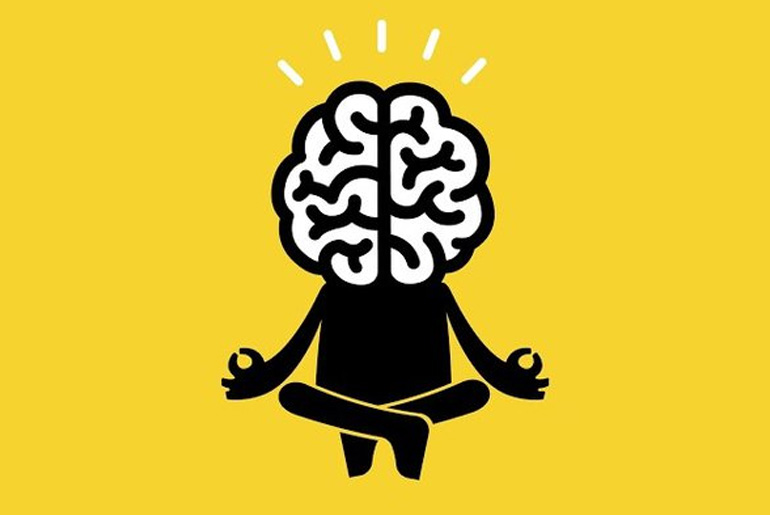Incorporating small, actionable steps into daily life can significantly contribute to improving mental health, mindset, and overall well-being. Recognizing the importance of mental health as a crucial component of well-being, adopting these practices can yield significant benefits. By prioritizing practices like gratitude, mindfulness, regular exercise, limiting screen time, connecting with others, prioritizing sleep, maintaining a healthy diet, setting realistic goals, practicing self-compassion, and engaging in enjoyable activities, individuals can cultivate a more positive and resilient mindset. These small daily habits, when consistently applied, can lead to noticeable improvements in mental health and overall quality of life.
Tailoring recommendations to individual needs and preferences is crucial, emphasizing the importance of seeking professional guidance when necessary. Regular practice of these habits can lead to lasting positive effects on mental well-being. Prioritizing mental health is essential for overall well-being, and even small daily habits can make a significant difference. By incorporating these simple steps into your routine, you can cultivate a healthier mindset, reduce stress, and improve your overall quality of life.
The Power of a Consistent Sleep Routine for Mental Health:
- Start Your Day with a Positive Affirmation: Begin your day by affirming something positive about yourself or your day ahead. Positive affirmations can help set a positive tone for your day.
- Practice Deep Breathing Exercises: Take a few moments throughout the day to practice deep breathing exercises. Deep breathing can help reduce stress and promote relaxation.
- Take Short Breaks: Incorporate short breaks into your day to step away from work or tasks. Even a few minutes of relaxation can help reduce stress and improve focus.
- Get Moving: Engage in physical activity, even if it’s just for a short walk or stretching session. Exercise releases endorphins, which can improve mood and reduce feelings of anxiety.
- Eat Nutrient-Rich Foods: Choose foods that nourish your body and mind, such as fruits, vegetables, lean proteins, and whole grains. Proper nutrition can positively impact your mood and energy levels.
- Stay Hydrated: Drink plenty of water throughout the day to stay hydrated. Dehydration can affect mood and cognitive function, so it’s essential to drink enough water.
- Practice Mindfulness: Take time to be present in the moment and pay attention to your thoughts and feelings without judgment. Mindfulness can help reduce stress and increase self-awareness.
- Express Gratitude: Take a moment each day to express gratitude for the things you appreciate in your life. Gratitude can improve mood and overall well-being.
- Limit Social Media Use: Set boundaries on your social media usage to reduce exposure to negative content and comparison. Spend more time engaging in meaningful face-to-face interactions instead.
- Connect with Loved Ones: Reach out to friends or family members for support or companionship. Social connections are essential for mental health and well-being.
- Set Realistic Goals: Set achievable goals for yourself, both big and small. Accomplishing goals can boost self-esteem and provide a sense of purpose.
- Practice Self-Compassion: Be kind to yourself and practice self-compassion, especially during challenging times. Treat yourself with the same kindness and understanding you would offer to a friend.
- Engage in a Hobby: Dedicate time to activities you enjoy, whether it’s reading, painting, gardening, or playing music. Hobbies can provide a sense of fulfillment and joy.
- Establish a Bedtime Routine: Create a calming bedtime routine to signal to your body that it’s time to wind down and prepare for sleep. Adequate sleep is crucial for mental health.
- Seek Help When Needed: If you’re struggling with your mental health, don’t hesitate to seek support from a therapist, counselor, or mental health professional. Asking for help is a sign of strength.
- Practice Acts of Kindness: Perform random acts of kindness for others, such as offering a compliment or lending a helping hand. Acts of kindness can boost mood and increase feelings of connection.
- Engage in Laughter: Find opportunities to laugh and experience joy each day. Laughter has been shown to reduce stress and improve mood.
- Limit Caffeine and Alcohol: Monitor your intake of caffeine and alcohol, as excessive consumption can negatively impact mental health and sleep quality.
- Practice Progressive Muscle Relaxation: Take a few minutes to practice progressive muscle relaxation, focusing on relaxing each muscle group in your body. This technique can help reduce tension and promote relaxation.
- Reflect on Your Day: Take time at the end of each day to reflect on your experiences and emotions. Journaling or simply reflecting on your day can help promote self-awareness and emotional processing.
Remember, improving mental health is a journey, and small steps taken consistently can make a big difference over time. Experiment with these suggestions and find what works best for you in promoting your own mental well-being.
Disclaimer:
The information contained in this article is for educational and informational purposes only and is not intended as a health advice. We would ask you to consult a qualified professional or medical expert to gain additional knowledge before you choose to consume any product or perform any exercise.







